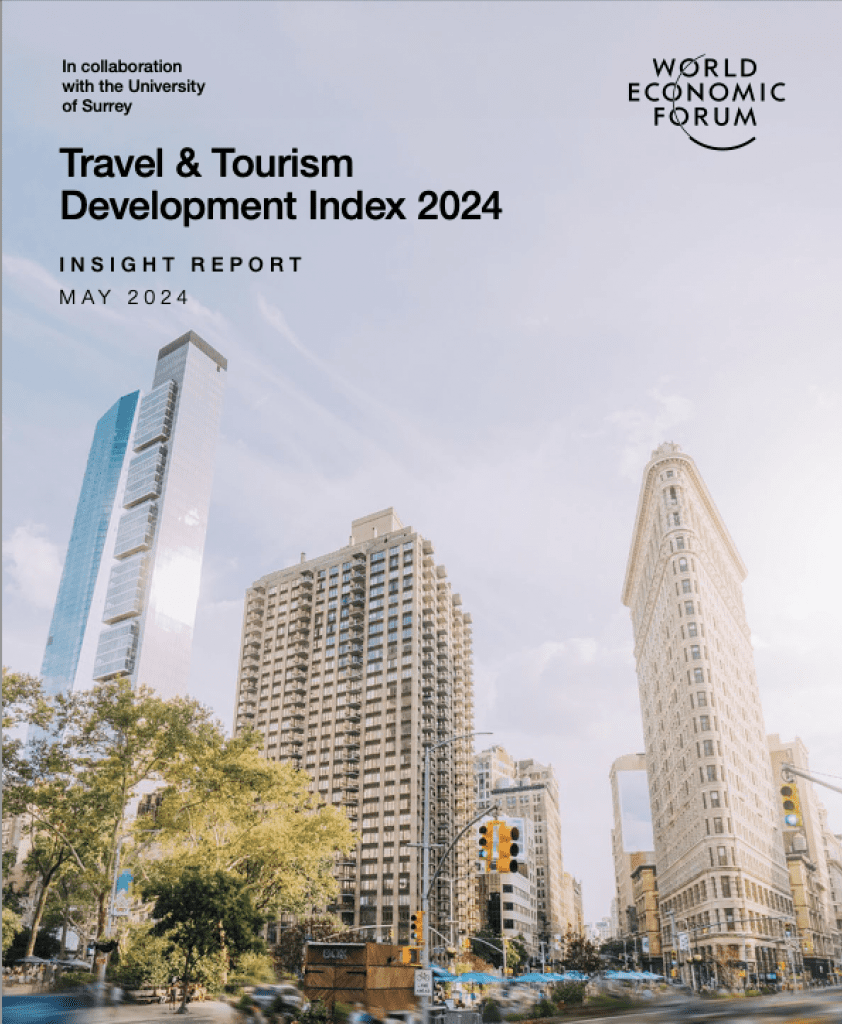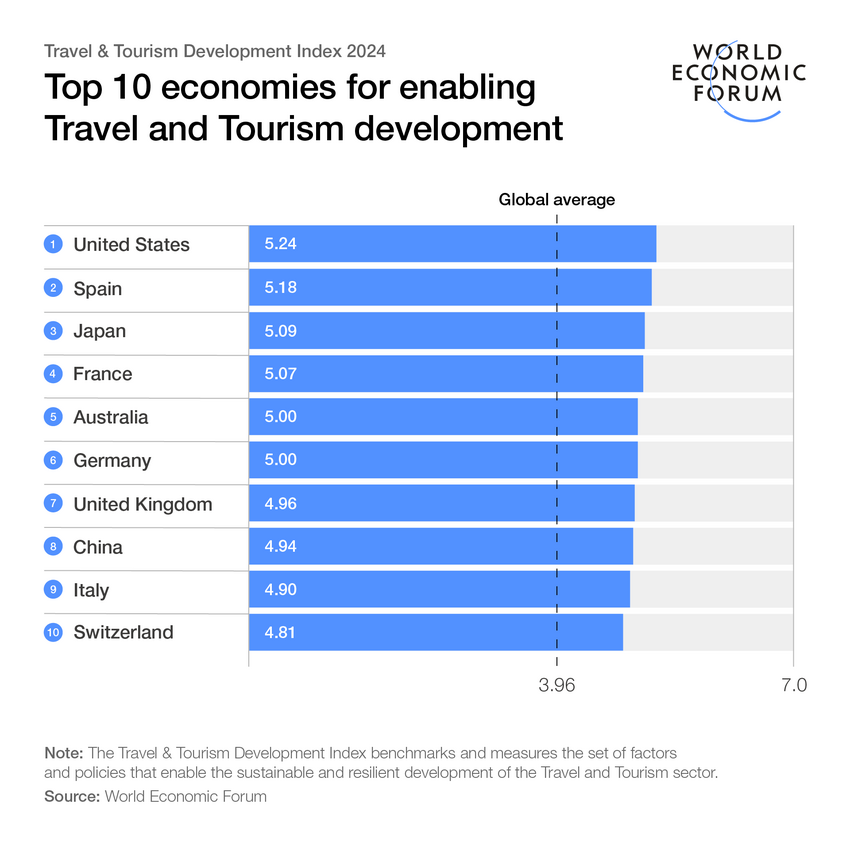Has the travel and tourism (T&T) sector recovered from the pandemic? How is climate change affecting global travel habits, and what is the impact of new digital technologies on T&T? These are just some of the questions occupying the minds of sector stakeholders and addressed in the latest Travel and Tourism Development Index (TTDI).
Published last week by the World Economic Forum (WEF), this must-read index measures the factors and policies enabling the sustainable and resilient development of the T&T sector. Together with the accompanying report, it is designed to serve as a benchmarking tool, to inform policy and investment decisions.
This edition of the TTDI includes several improvements based on newly available data and recently developed indicators on the environmental and social impact of travel and tourism.
“For those involved in the tourism and travel sector, the recently published WEF Travel and Tourism Development Index (TTDI) is an essential read. This report offers valuable insights into the best-performing countries and the factors driving their success. By outlining each country’s placement in a ranking, the report provides concrete evidence of effective policies and strategies,” shares Jose Filipe Torres, CEO of Bloom Consulting.
Since 2015, Bloom Consulting has been proud to share its intelligence with the WEF through its Bloom Consulting Country Brand Ranking © and D2 Digital Demand © software.
Bloom Consulting, as a data partner, and Jose Filipe Torres, as a member of the TTDI index advisory group, strongly believe this report will enrich tourism and place branding strategies.

Source: WEF
Insights of TTDI 2024
The good news is that the T&T sector has once again proved its resiliency and the public is showing a strong desire to travel. In 2024, international tourist arrivals are expected to reach pre-pandemic levels!
However, this is not a green light for destination managers to rest on their laurels and take a breather. Many questions need to be considered to ensure a future-proof destination, as well as accountability in the context of sustainability. The TTDI notes geopolitical, environmental and macroeconomic factors, such as ongoing conflicts, inflation rates and natural disasters, as well as digital developments among the challenges to contemplate.
The results highlight that high-income economies generally continue to have more favourable conditions for travel and tourism development. This is helped by conducive business environments, dynamic labour markets, open travel policies, strong transport and tourism infrastructure, and well-developed natural, cultural and non-leisure attractions.
The United States holds the first spot in this edition of the WEF TTDI, followed by Spain in second and Japan in third place. See the top 10 economies in the image below.

Key findings impacting the T&T sector in 2024
Out of the 119 economies analysed in the TTDI, 71 saw an improvement in their scores between 2019 and 2024. Despite this progress, the average score has only risen by 0.7% above pre-pandemic levels, indicating a slow recovery of the sector.
Certain regions, notably Europe and Asia-Pacific, along with high-income economies, continue to report the most favourable conditions for T&T development showcasing resilience and adaptability in the face of new challenges.
While conditions for advancing the T&T sector in developing economies continue to improve, there remains a call for further enhancements to address gaps and capitalise on growth opportunities.
Additional takeaways to consider when planning and strategising
The T&T sector is benefiting from the policies implemented during the pandemic and the increased readiness in Information and Communication Technology (ICT). However, there is a pressing need to focus on areas such as workforce resilience and equality to ensure a sustainable and inclusive industry.
For developing economies, leveraging T&T resources, especially natural and cultural assets, presents a significant opportunity for driving tourism-led economic development, fostering local prosperity.
Balancing growth with sustainability remains a significant challenge for the T&T sector, highlighting the importance of adopting responsible practises and mitigating environmental impacts.
For more in-depth insights and analysis, read the complete report on the WEF website.
Published on 05.06.2024.










